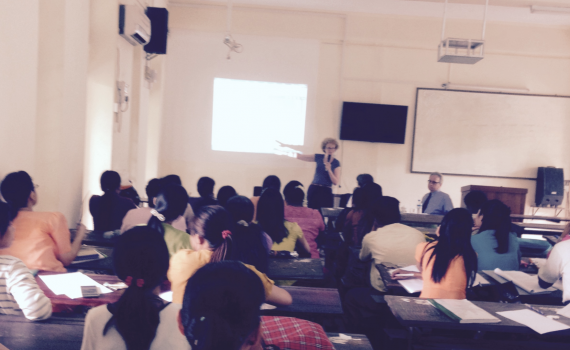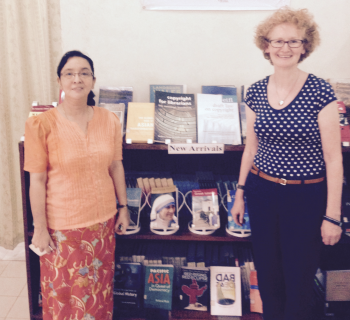
As Myanmar emerges from five decades of economic and political isolation, the government is taking measures to open up the economy and to introduce legal and social reforms across a wide range of sectors. Trade-related legislation such as competition and consumer protection laws are being revised, and comprehensive new laws on intellectual property – trademark, patent and copyright – are being introduced.
Adopting a new copyright law for the digital age
The adoption of a new copyright law, expected in 2015 or 2016 after national elections, is of critical concern to libraries. It is vital that Myanmar adopts a new copyright law that supports education and learning, one of Myanmar’s main development priorities, especially as Myanmar has Least Developed Country status. The law should enable the development of modern, effective library services, and allow people to reasonably use copyright-protected content for their everyday information needs.
The WIPO Study on Copyright Limitations and Exceptions for Libraries and Archives (2014) found that, while there are no specific library provisions in the current (though defunct) Copyright Act (1914), there are two important exceptions that provide a good starting point for the new law. The first permits ‘fair dealing’ with any work for the purposes of private study, research, criticism, review, or newspaper summary. The second provides a limited right for schools to make copies of short passages from published literary works in use in collections (that might be called course packs today).
The new copyright law also needs to be appropriate for the digital age. It should permit the use of digital technologies in libraries, allow libraries and archives to undertake digital programmes to preserve Myanmar’s cultural heritage, permit online distance education, and encourage research and innovation in support of the vision for a “Smart and Connected Myanmar”. And so that Myanmar has a competitive edge in the globalized economy, the copyright law should not be more restrictive than the laws of its neighbours and industrialized countries beyond.
Discussions with key stakeholders

To help prepare the path for libraries, the EIFL Copyright and Libraries Programme arranged a visit to Myanmar from 14-19 May 2015 as part of the EIFL eLibrary Myanmar project. Teresa Hackett, EIFL Copyright and Libraries Programme Manager, Jonathan Band, an international copyright expert (who advises the US Association of Research Libraries among other groups), and our local library partners went to Nay Pyi Taw, Myanmar’s political capital, to discuss library, technology and copyright issues with various ministries. Meetings with other stakeholders also took place in Yangon.
While recognizing that the new law will introduce very big changes that will impact on areas such as book prices and user behaviour, there was also an awareness among stakeholders that it should support public policy goals and meet the needs of the people of Myanmar at this important time in their history.
During the visit, EIFL also held an interactive lecture on copyright and its impact on policy at the University of Yangon’s Department of Law (where intellectual property is taught in courses on International Law and Business Law), with 35 postgraduate students and staff.
As the first monsoon rains of the season descended and the electricity went on and off during the lecture, it was a timely reminder that Myanmar faces many practical challenges on the road to an open society.
Learn more
SHARE / PRINT









